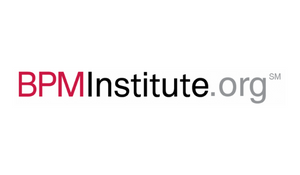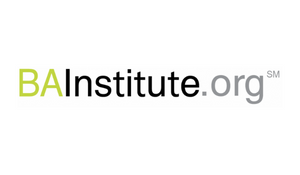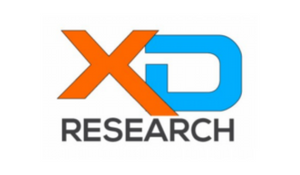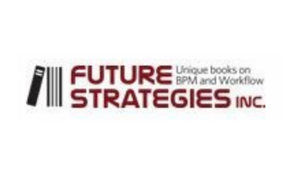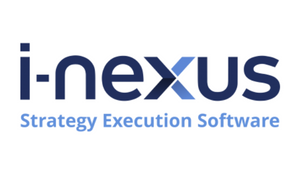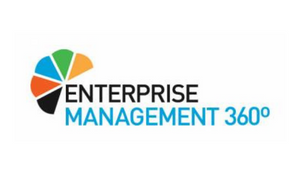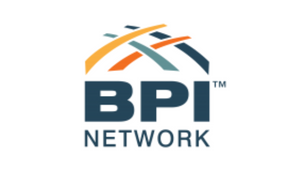
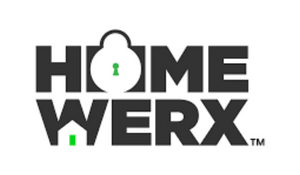
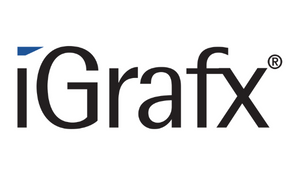
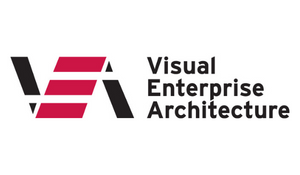
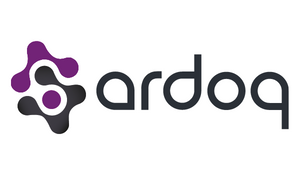
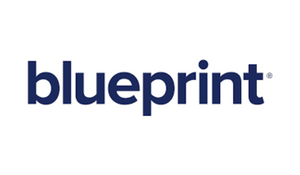
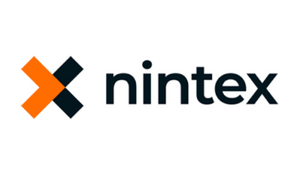
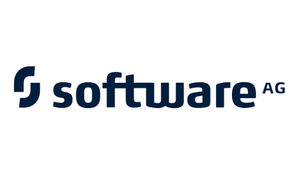
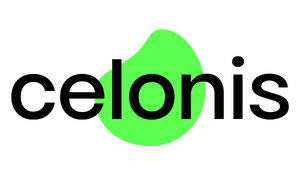
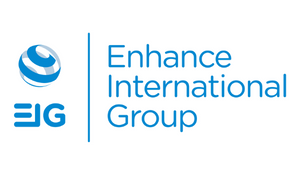
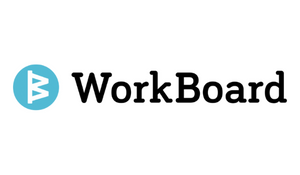
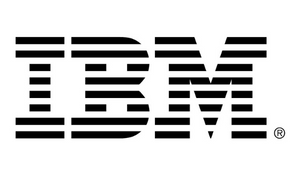
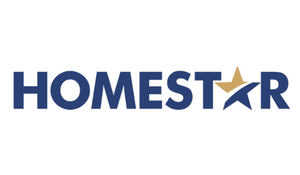
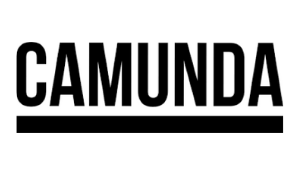
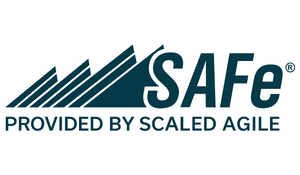
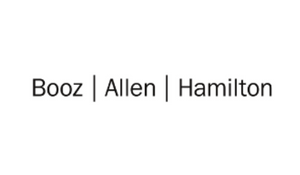
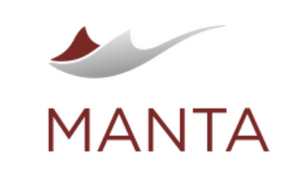
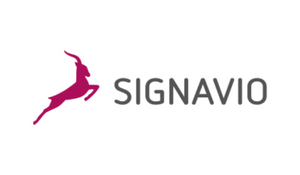
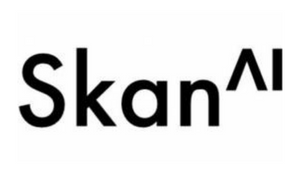
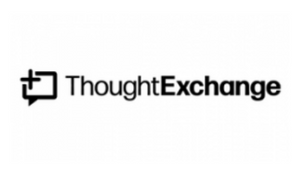
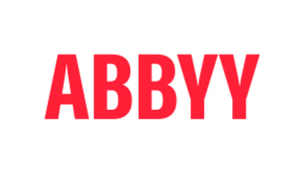
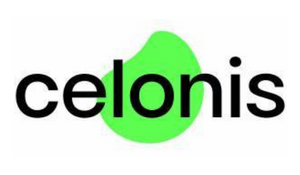
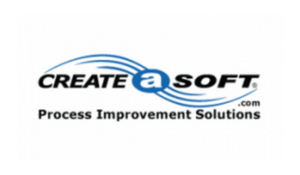
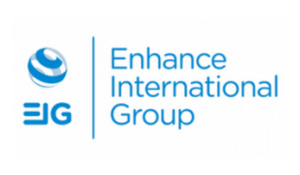
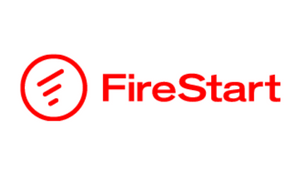
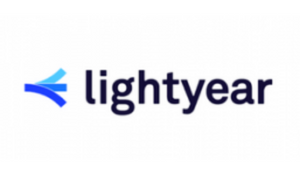
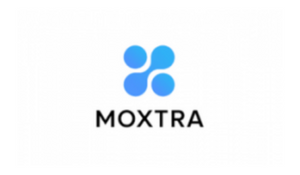
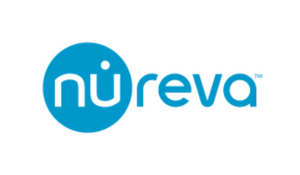
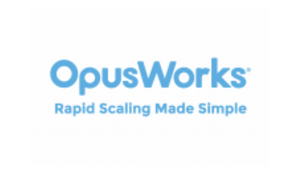
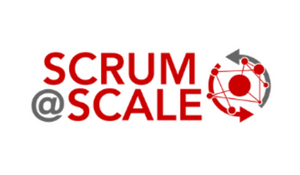
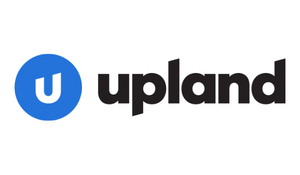
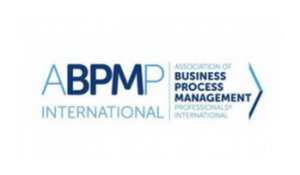
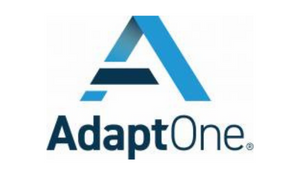
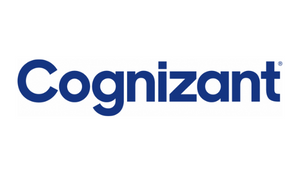
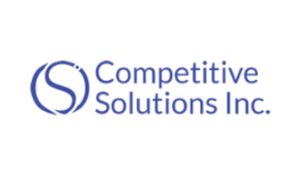
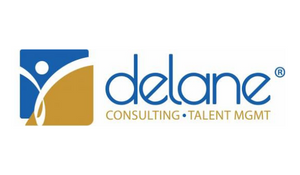
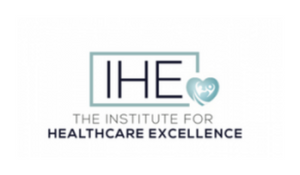
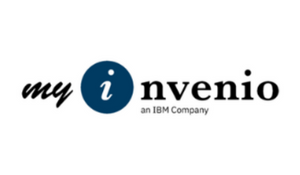
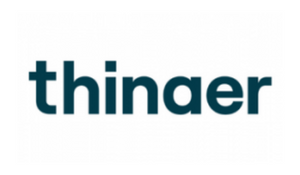
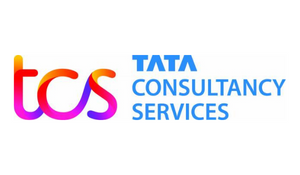
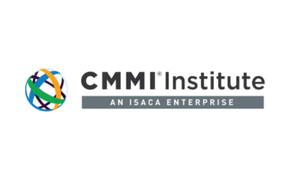
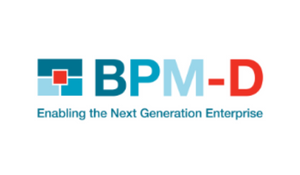
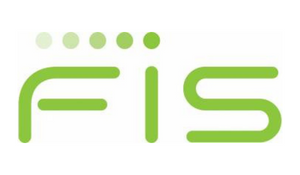
Courtesy of Westminster City Council's Aruj Haider below is a transcript of his speaking session on 'Future proofing your workplace- Global FoW Strategy to drive your hybrid workforce through human centred and experience-led approach that is customized to meet both business and stakeholders' needs' to Build a Thriving Enterprise that took place at Digital Workplace Transformation Live.
.png?width=300&name=BLOGS%20COMPANY%20LOGO%20(68).png)

Session Information:
Future proofing your workplace- Global FoW Strategy to drive your hybrid workforce through human centred and experience-led approach that is customized to meet both business and stakeholders' needs
Over the past year and a half, the pandemic has changed the world and Westminster city council staff have gone above and beyond to support their teams and meet the needs of their residents and businesses from their home workspaces- demonstrating the power in digital evolution. -That being said- the sense of interconnectedness with the City, its residents and colleagues has been truly missed. In this session we explore the journey Westminster city council has been on and their approach on the return to the city and future of work guided by a user led approach instead of a binary rule.
Session Transcript:
She's coming directly from the UK, and I'm talking about a Rouge, either Chief Digital Innovation Officer at the city of Westminster. Really grateful to have you here, a Rouge is the Chief Digital Innovation Officer at Westminster City Council. She manages the IT customer experience and digital teams along with the emerging smart cities program within our portfolio, which, by the way, is incredibly exciting for the council. and one that's moving at a very fast pace. Irish priorities include using technology and data to empower communities and fuel innovation, creating strategic partnerships, and focusing on digital talent and inclusion. Just so the audience knows, there will be no slides on this presentation. I will just be a rouge talking to us about her experience leading this digital transformation at the city of Westminster.
Rouged. What a gift to have you with us in, on behalf of our global audience, we're very grateful for your participation and sharing your wisdom and expertise with us.
Thank you, Jose, What a brilliant introduction, and, I should say, good morning, everybody. I must say that I'm absolutely humbled and delighted to have been invited. And, in fact, I was so excited that this is my third attempt, and actually I tried sort of coming on the session two times before as well, for us in the morning, and my 11 0 AM. So, this is obviously GMV, and I got it wrong. The second time, I think Joseph was giving a bit of an introduction to another speaker, and then finally, I think I'm here at the right time. So, I'm hoping that, you know, whilst I'm going to be sharing some of my insights that through the questions and answers, that, I'm going to learn from you as well.
So, I'll start off with a little bit of background on myself, ..., thank you so much for, you know, going through the detail. My name is Ruth Haider, and I've been in the role of Chief Digital and Innovation Officer role at best mates with City Council for just under a year now.
And actually, my background is non tech.
So this is my first acknowledge, Udal, and my background is all around culture change, and that is something that is very close to my heart.
So, this is around, you know, achieving that big change, those outcomes for our communities, our residents, transformation, program management, and change management.
So, when this opportunity was presented to me, investment to City Council at first, I thought, I don't think this is me because a typical local government, you know, kind of roll around IT seemed to me. Like, it was very process oriented. And one of the things that people don't know me or you don't know about me who don't know me of courses, that I'm quite rebellious and I'd like to challenge process. And so I thought, if it's all about process, and all I have to do is, you know, and that process, then, this is not for me. But actually, this opportunity is much more than that. It is actually about that human centered approach. So how can we look at the needs of our customers, our communities, understand the experiences, and, therefore, use technology to help achieve that instead of the other way around? And it meant that it was actually going to be quite challenging role, Clare, to creative role, and, you know, having all the basics foundation, but also some of the exciting bits.
So, here I am, you know, I'm nearly a year down the line, and there's some incredible things that, you know, we are doing, and lots more to do was tell, because, you know, we are still not get anywhere close to where we want to be.
So, the topic that I've been given for today's session is thinking about the human centered design approach, especially in the context of, you know, our workplace. Um, so when we think about, you know, productivity from the angle of our staff, you know, how can we use that human centered design approach to create the workplaces that allow our staff to be the most productive?
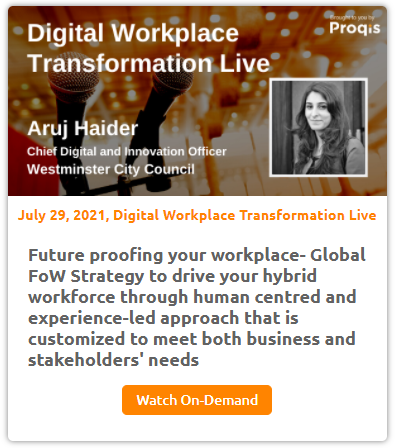 And for me, that lens that I'm adding to it is that by doing this, and by having that human to human interaction, we actually deliver the right outcomes for our customers, our communities, our businesses, and visitors. So that is going to be the focus of my presentation.
And for me, that lens that I'm adding to it is that by doing this, and by having that human to human interaction, we actually deliver the right outcomes for our customers, our communities, our businesses, and visitors. So that is going to be the focus of my presentation.
Before I delve into you, know, the whole thing around What are approaches around hybrid walking, the future of work, and what is Westminster doing? I want to talk to you a little bit about resumes to city Council, or the city of Westminster.
I know, I can't see you over here, but I just want you to take a moment and think about, you know, the time if you've ever played the game, called monopoly.
Which is a board game.
I know, I can't see a show of hands, but I'm sure that many of you are aware of monopoly. So I grew up in Pakistan if you can't tell from my accent already.
And I always had a connection to Westminster, by playing monopoly, and, actually, except, for the first rule, on the monopoly, monopoly board, all other rows, and all the stops. And those rows are actually based in Westminster.
And I thought, what an incredible place, you know, where you've got Buckingham Palace to Fargo, Square, Oxford Street, you know, all of those places.
But what was really fascinating after I started working in investments, is the diversity of the place. And how, you know, incredibly inclusive, it is.
So to give you an example and bring it to life in terms of some of the challenges we face.
So if you're a resident who was living in Hyde Park, which is one of the wealthiest parts of Westminster, and you took a short walk to George Street, which is one of the most deprived parts of the Council, you lose 10 years of your life in terms of life expectancy.
And that just shows you how Stark it is, and what the diversity and the challenge we have of the different kinds of services we provide pre pandemic. We had over one million people who lived worked and visited investments for every day.
Of course, we have faced a bit of a hit in terms of the visit visitor numbers post pandemic but it's still, you know, if you think about you know the stats and you dissect them a little bit out of this population. Only 250,000 residents. The rest are businesses and visitors.
So again, that shows you that the kinds of services we provide are not just for, you know, local residents and communities. It's also well visitors, but it's also for businesses regenerate more and GVA than a number of other authorities combined together across the rest of the UK.
So it may it specimens, are in a very challenging space, but also very exciting place, given its history, its legacy, and the place itself.
So for me, that personal connection to Westminster, and then having this role made if the perfect match, and it gave me the opportunity to make the real deference to all of these different communities. But I was very conscious, and especially with my background around culture, that we can't really affect any digital change, we can't really affect any transformation in the services we provide if we don't think about our stuff.
So, Westminster actually has been on a bit of a journey Colchicine journey, we have what we call the Westminster Way. It has three pillars, Investments, we're working. It has everyone's a leader, everyone's talented and everyone's valued. So, we worked a lot on this culture change program with the big focus on inclusion and diversity pre pandemic and actually, our engagement scores rose by 16% in just two years.
But, then, of course, the pandemic hit and all of a sudden, we weren't, you know, seeing each other in the offices every day.
And, you know, it meant that it was a very different way of providing services to the most vulnerable, but also those who needed to act as frontline, to be able to provide those services to the most vulnerable as well.
So it was a very challenging time And Westminster staff worked incredibly hard, whether it was somebody in social care or children and young people. You know, or libraries, for example, from an inclusion perspective. Everybody worked extremely hard.
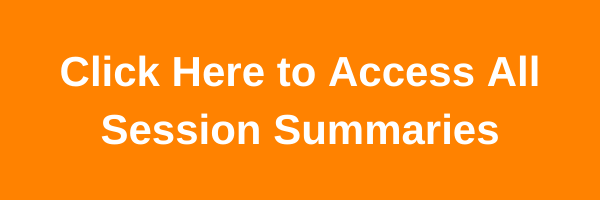 one of the things that we know that people missed during this time was the connection to the city.
one of the things that we know that people missed during this time was the connection to the city.
Only less than 10% of our employees live in Westminster, the rest are living all across sort of, you know, UK.
So that connection to the city is something that we all really missed. You know, I went to I'm not based in Westminster as well.
So, I went to my office after the lifting a little logged out and I actually took a gob.
So, we were driving around Oxford Street and I just had goosebumps because as I was driving around, I felt that connection to the city and looked at all those iconic places. But I also looked at what made Westminster, Westminster, and, you know, things like, you know, Carnaby Street in the middle of London.
All of those things, and then, I sort of took a walk around Church Street and the markets over there. And that made me feel the connection back to the city.
The other thing that I miss and a lot of our staff told us is that they missed those conversations with their colleagues, those water cooler moments. So in our approach to encourage people back to the workplaces, we didn't want to go over the binary to what we didn't want to wants to say. No, you must come in one day, two days or three days because that wasn't the Westminster way, and that wasn't what, you know, we felt that a leading organization could do in our in our in our case. So, we did a lot of research around this whole workplace thing.
And, you know, how do we use digital and hybrid to create the workplace of the future?
And, you know, we looked at big tech. So, Google, Apple, we looked at, you know, likes of Amazon, we looked at, you know, the big four, but we also looked at other local government organizations. We also looked at central government itself, and what we found was that some organizations gave a very strong message to say, Staff must come in three days a week.
Then they change their messages. They said, OK. No. No. We will make it softer. You decide. Others said, Just go completely work from home, or, you know, a remotely from a cafe or elsewhere, and others said, OK. one day a week, what we felt we couldn't do was set of binary rule like that, because of the nature of the different services we provide.
So instead, what we are doing is to get the connection to the community, that connection to the city.
We are focusing on a very human centered approach.
And we're looking at four key pillars, know, to our approach, to you know, returning to work, and the first pillar is that, you know, we are saying to our staff, Welcome back to the city.
So, we're not saying welcome back to the office. We're saying welcome back to the city.
And as a city, there are different parts of it that we are focusing the attention on.
The first one being the place, I mentioned getting goose bumps as I walked past Oxford Street, we are saying, guys come, you know, welcome back to the city.
So in Smart Cities, we are developing this augmented reality app, which will allow you to understand the history of, you know, some of those important landmarks. We're doing something around a photographer's gallery. So as part of the augmented reality app, you'll see a camera and you'll see some important boards around that that will tell you, did you know that this has happened? But also, then, what is going to be the future?
So just as an example of enticing ourselves back to the city to experience that.
The second thing we are focusing on as part of welcome back to the city is the connection with our communities, our customers, You know, our residents, our businesses and visitors.
I think our staff have done a stellar job in the last 18 months.
But one of the things that we feel has been missed is that connection, and there is no human interaction face-to-face. And we've got lots of technology, which is brilliant, but the face-to-face human interaction has its merits. So, getting people to come and do these, you know, public forums, where they can hear the, you know, about the problems that our customers might be facing, or they can look at the opportunity. You know, firsthand, is something we're all sequencing.
The third element that we are using to highlight people's attention on is a connection with the colleagues, because we've all tried collaborating virtually, and I think it's brilliant to do an extent. But, when it comes to real problem solving, coming together, face to face when we can, also has its merits. So, that team building that social is a third reason we're encouraging people to come back to. So, that's the first area.
The second area that we are making, you know, really big into communications, is empowered people.
And, for us, that is very, very important around everyone's a leader pillar in Westminster. And what we don't want to do is say to people that you must come in this day, that day.
We want them to make informed choices in doing, though, in making those informed choices. one of the things that we have done and we want to be doing more of is that user centered approach, and at the end, that research. So what are the different Personas Council, worker, office worker, frontline even, a counselor. So what all of these different personas, What are their needs? And what we're trying to do is I marry that up with some of the trends that we're seeing and experiencing in, terms of, you know, how people communicate, how people are changing offices and we're bringing it together to give people those choices so that they can make the best choices for them.
one of the things that people have told us during the pandemic, and actually, this is true, in my case, I've got two young kids, so a six year old and an 18 month old, and working in this flexible way personally really helps me because I can spend time with them. So, just before this session, I was actually, you know, I spend 20 minutes with my son, who's off on summer holidays, and I played with him, and I didn't let him, and I won all three times, which maybe I should let him in ones, as well. But this works for me. So I really want to make sure that I've got the flexibility of management managing my personal life, along with the work-life. I want to be the best at work, as well as at my home.
So this allows me to make the most of it.
But I will know, as an adult, but I need to go in, and I do want to go in, And I'm going in, sort of, you know, 1 or 2, It isn't actually.
So that adult to adult conversation, without having to set it all is actually really working. And as I'm speaking, I think my son is walking in. But I'm going to. So please forgive, forgive me on that.
The third pillar that we're focusing on is innovative and exciting spaces. So we want to give people a reason to come back. And this is where the Smart Cities team has played an exponential role in experimenting with different kinds of spaces.
So some of the research that you know we have got and you know we've seen other organizations do is all for the pandemic.
14:42
You know, people are thinking about using their workspaces in a very different way.
So it's not so much a question of how much space they will need but how they're going to be using it and repurposing it to do more collaborative spaces.
So, as a council, we have just launched our innovation hub.
And it's a small state space, because we wanted to just get on with an experiment with something. And it has got various zones, like the tech zone, the collaborations on event space. And the idea is, and it's quite open. You know, it doesn't have loss of closed rooms. It's got interactive screens. It's got a graffiti wall where you can sort of doodle little bit.
And the purpose of that is that nobody and research proves that you don't want to leave your home offices or remote offices where you can check e-mails on your desk, then go to, you know, your actual office and do e-mails or teams meetings. Nobody wants to do that. If they want to go to office, they'll want to go so that they can collaborate with their, you know, team members, or they could see some inspiring.
-1.png?width=600&name=Event%20Email%20Graphic%20Virtual%20Conferences%20(17)-1.png) Here's some inspiring talks. Look at some different pieces of technology. So one of the things that we're trying to do in this innovation space as we are collaborating with the partners. So, whether it's Big Tech, SMEs, local schools, we're getting them to come in and show us some of the technology and around or topics or assistive tech. You know, is one for example, playable cities and other theme. The other day, we had something around EV charging. So, we're getting these thought leaders, you know, different partners to come in and talk to us about that. And in doing so, we are inspiring thinking, so they can go away and do some, you know, hackathon on whether that idea can help them solve problems in their services. And this is actually very collaborative. So creating more purpose around spaces like this entices people back and that is our approach. one of the things that I'm really keen on doing is also seeing if they can provide freelance writers. We have public sector, so money is always tight. But we're exploring that as well.
Here's some inspiring talks. Look at some different pieces of technology. So one of the things that we're trying to do in this innovation space as we are collaborating with the partners. So, whether it's Big Tech, SMEs, local schools, we're getting them to come in and show us some of the technology and around or topics or assistive tech. You know, is one for example, playable cities and other theme. The other day, we had something around EV charging. So, we're getting these thought leaders, you know, different partners to come in and talk to us about that. And in doing so, we are inspiring thinking, so they can go away and do some, you know, hackathon on whether that idea can help them solve problems in their services. And this is actually very collaborative. So creating more purpose around spaces like this entices people back and that is our approach. one of the things that I'm really keen on doing is also seeing if they can provide freelance writers. We have public sector, so money is always tight. But we're exploring that as well.
The fourth thing that we are focusing on as part of this is sorry about that.
Sorry about that. You know, the joys of working from home.
So, the last pillar then is well-being and inclusivity.
one of the things that has come out in terms of the staff survey that we did, but also the research proves is, inclusivity considerations need to be absolutely at the forefront of what we do in the future.
And it might be that certain demographic groups, you know, are at are actually worse off by continually working from home or remotely if leaders are not careful. So this is where leadership is absolutely crucial, and it is the role of leaders to make sure that they know that they hear all the voices even if they're not the loudest, or even if they're not the most visible.
So that they'll begin to inclusivity is whether they'll being from the perspective of, you know, going, being out and about, so physically going to the office, if in case you're lonely or isolated, or actually from that inclusivity perspective and nobody is left behind is absolutely important. So bringing this all together is the narrative that, you know, we have used, we have formed. And what we are saying is, if you are not perfect, we don't know the perfect answer, the truth is no organization or the perfect answer.
But we wanted to be the Westminster, and we want to work hard to make sure that, you know, we empower our staff through a human centered design. Which then leads to the right kinds of services being delivered to our communities.
This then brings me to the second part of my talk over here, which is that human centered design approach, when we enable our staff to do that. How we are using that in the digital and smart space to transform what we do for our communities, our customers, and businesses. So, as Joseph mentioned, in my portfolio, I've got the IT team, Smart cities, customer experience, you know, teams, and it's sort of growing in my portfolio. There are sort of four areas that are my focus. The first one is creating new value through Smarten Digital.
And, for me, the new value element is quite important, and it's quite, It's quite, it can be quite an abstract construct, but it can also be a very specific, basic thing as well.
And what I mean by that is, I don't want, you know, our teams to be leading on IT projects, because IT projects won't get anywhere. I want our teams to be leading on projects that transformed experiences for our communities using the human centered approach. And I'll, I'll expand on that a little bit, as well.
For example, one of the projects that we are leading on at the moment.
You know, Sorry, can you hear me?
I've just got um, Sorry, Yeah, sounds good urrutia everything sounds good.
OK, great, sorry, I'm just getting some boxes on my screen, so apologies for that. I will just move this on-site.
Great, OK, so one of the projects that we're working on is what we call the digital portal, and therefore linked with that is a digital Card so, You know? I've been quite frustrated with my own local Council, I'm not going to tell you where I live and The poor experience, whereas if you look at the rest of the world, whether it's sort of uber eats or Dominoes, the experience is so easy. So I know when I've ordered my pizza, I know I can track it all the way through, and I can also see when it is being delivered. Whereas that's not the experience that unfortunately, people have, and you know they are interacting with the council service. And what happens is that there are lots of different interactions, lots of different forms, and then people just get, you know, really upset. And it's horrible customer experience.
I'm really sorry, Josie, my son is shouting, Can you just give me one second please? Use sound good that we can actually cannot hear him on the background. Let him have fun and gone.
OK, great. So, if you can hear him, that's good, he was a shouting into the room. It's like, you know, the joys of working from home?
So, um, as part of the why, my vision is that, when somebody, and when people have tried to do this in the Council, they've tried to approach it in a, you know, really, really big way.
And what's happened is that you know, because if you approach it in such a big way, it's been really difficult to completed And they've spent 500 years coming up with a ... strategy, perfect plan, and nobody's delivered. So, we've completely changed our approach. We want to start small and scale up afterwards, but we also want to do some things that, you know, makes it a real tangible benefits for our residents and communities. So, the approach that we are using for the Digital Guard and, therefore, the digital portales, let's start small. Let's take one problem at a time. Let's take one customer interaction of time.
So, we are starting golf with lesser says, somebody who's just moved in Westminster.
And, you know, they've just moved in Westminster. And, you know, they need to pay for council docs, register for it. They need to apply for a parking permit. And they need to, if they've got kids, they might get childcare vouchers. And, you know, they might register for a doctor. Now, all of those, some of those introductions are done by the council, others by partners.
But it's really frustrating, because as a customer, you have to complete 500 different forms. And even though the council holzer data through the council tax register, we don't learn from it.
So one of the things as the MVP that we're trying to focus on is let's bring all of this online in one easy access and portal.
So we are saying Week one investment stuff, and then as part of that, you come in, you just fill in your information once. Ideally, you should have learned about you already through the council tax register and, know, about your eligibility. So whether you, are, you, know, eligible for social care, benefits, or, you know, children services, or, you know, some housing benefits as well. So we should be able to learn about you on that already. So that you get, once you don't have to put multiple forms at the back of that. You get access to libraries to leisure, you've got your parking permit, all kinds of licenses done. And now let's move on to the next part of the interaction.
.png?width=742&name=Screenshot%20(4).png) So that is the approach that you're applying, and also taking it a step further ado, Access to the digital card. So once you've learned from that, we don't need to separately ask you for different applications for leisure or libraries, what we can do is give you access digitally through your phones, because you've already done that. You don't need to do it. Again, just go to a library, you know, use your phone, and you swipe over around and you get access to the place. So that's just one example of, you know, new value. The second part of our portfolio is partnerships and innovation. So one of the things that local government is horrible at is, you know, taking risks in the United Kingdom. So, that is something that we're trying to change. You take risks in a, in a, in a controlled way, In a way that you know, in a safe and secure way. So, I'm not talking about cybersecurity risk, because that's not right, but you try and experiment with things.
So that is the approach that you're applying, and also taking it a step further ado, Access to the digital card. So once you've learned from that, we don't need to separately ask you for different applications for leisure or libraries, what we can do is give you access digitally through your phones, because you've already done that. You don't need to do it. Again, just go to a library, you know, use your phone, and you swipe over around and you get access to the place. So that's just one example of, you know, new value. The second part of our portfolio is partnerships and innovation. So one of the things that local government is horrible at is, you know, taking risks in the United Kingdom. So, that is something that we're trying to change. You take risks in a, in a, in a controlled way, In a way that you know, in a safe and secure way. So, I'm not talking about cybersecurity risk, because that's not right, but you try and experiment with things.
So, one of the things that I'm constantly, you know, pushing again, says, this isn't a current technology. Stock computer says, no, and I'm constantly challenged. That, if you remember, I said at the beginning, I like to rebel.
That's one of the places where I do rebel if we don't try something new and if we just Try and present 500 reasons, but not doing it will never get anywhere. And this is where this is not about technology. This is about the problems we're trying to solve. This is we're bringing partners who want to work with us and taking some of those ideas and inclusive it is helping us.
The third pillar for us as digital inclusion and talent my inspiration and all of this is actually the city of Barcelona where 70% of their smart city projects come from the communities themselves, And I really want investments to be famous for that. So, you know, we don't want to create this big program that we think as officers, right? And then deliver the benefits in our heads. Actually, we want to go out there, learn you know, what's keeping our, you know, our customers up at night, what are the problems, what are the opportunities that pinpoints again points and use that to define what we do afterwards.
Equally, a big part of that is on the inclusion piece, not everybody will have access to digital in the way that I would, for example.
So, what is our role and we are doing a big piece of work around the London Office of Technology and Innovation over there as well and trying to understand that also understanding some of the drivers of those who may be more digitally excluded.
Again, it's a very user led approach. This is not about lots of interventions, lots of solutions.
Actually, this is about understanding for us, and that is very, very important. So one thing that we're doing as part of this is we've set up a couple of incubator sites, so the idea is we understand the drivers for that demographic.
We then do targeted interventions in those two incubator sites, and we track that over time and see what impact it has meet and if it's good enough, we scale it up.
And I think that is absolutely crucial to all of you, too.
Then the, the next pillar is around talent. I really want to make Westminster, you know, an attractive place for digital talent. And therefore, you know, trying to help residents residents in the first place you know to break those barriers to employment, understand, take more, but also, you know, go wider across, this, is extremely important.
So again, and that's the Spirit one of the programs that we are just about to launch, is Westminster Tech Lines Program, which is around getting apprentices. And these apprenticeships range from digital marketing, data analysts, software engineering, And the idea is that, you know, we are going to be, because these are the restaurant subject lines. We are working with a partner pride, and that partner pride, you know, we've got companies like Unilever, multiverse fujitsu.
And the idea is that we we have our apprentices have experienced stays in these organizations. They learn the ways of working in the bring them back. And we keep it fresh. Equally V host, they're gonna apprenticeships as well. And they learn about, you know, the councils services that you provide as well.
So, And last but not least, in all of this, I think, the foundation pillar we must not forget about, and that is all around the data, that we are calling our operating system, how it all comes together, how we aggregate it so that we can use it, we can make sense of it.
A small example of that is the work that we are doing around schools around air quality.
So, because one of the one of our ambitions as a council overall is to be cleaner and greener and just rolling out technology's easy. But, what we want to do is behavior change. Again, linking back to that human centered design approach.
So, what we've done is, we've put some air quality sensors outside a number of schools. And the idea is that, you know, we are sharing that data with the schools.
saw that the teacher shared that data with the kids and the kids can encourage naughty parents like me who still drive their kids to school to encourage them to walk and have no. So, that behavior change, then, becomes extremely important overtime. We are extending the sensor Network. So we are creating a citywide environmental sensors network, which will also include air, pollution noise, and no traffic, all of these all come together.
It's aggregated in a way that makes sense to different audiences, including the users, whether it's kids, whether it's, you know, parents, whether it's council offices, and all of that we're working on to make sure that, you know, from a, you know, a portal perspective, we are sort of keeping adult profit. But what we're not doing is going out there with the Big bang approach and coming up with the perfect system. Because that would be too complicated. and we wouldn't solve any problems.
So I think that is it from my presentation. I'm going to wrap it up now to say that Westminster, for me, is an incredible place.
My background of being non tech allows me to awesome, really silly questions for those silly questions, all around culture change, customer experience, right outcomes.
And, by making sure that our focus is on enabling our staff in a very human centered, you obey the human to human approach, where it is about enabling and empowering them, and making them excited about returning to the city. We are then able to deliver some very human centered interventions, you know, and, and products, and services, and put buttons on the map at some point, hopefully. So thank you for listening to me really appreciate all your time. And I'd like to open it up to questions and answers and hand over to Josie. Thank you.
 That's Fantastic, Rouge really, really appreciate all those insights. What the, what, the unique perspectives you have from this role in the city of Westminster, and the engagement, and the inclusion of technology strategy, and community altogether, you know, it's interesting. Because we had never planted this way. It sounds like, you know, We had this amazing they plan, should they? Where we started with, what, you absolutely love. We started talking about process driven applications, which, you highlighted, it's not really something that you love doing your, your creative. you like to actually change things. But, we started actual on the process side of things, and the Discipline approach to process with a presentation from Silver missed.
That's Fantastic, Rouge really, really appreciate all those insights. What the, what, the unique perspectives you have from this role in the city of Westminster, and the engagement, and the inclusion of technology strategy, and community altogether, you know, it's interesting. Because we had never planted this way. It sounds like, you know, We had this amazing they plan, should they? Where we started with, what, you absolutely love. We started talking about process driven applications, which, you highlighted, it's not really something that you love doing your, your creative. you like to actually change things. But, we started actual on the process side of things, and the Discipline approach to process with a presentation from Silver missed.
And then we moved to the Director of Digital Transformation for .... And his focus was actually on human capital, and the human capital, and the culture that's built on, maybe, some of the process that was discussed before. But you have to go beyond that in the, in the business. And now you come in and you thought it take that. I added to the next step, because ... talked a little bit about the importance of community in this decision making for businesses. Now, you come in and the community is the centerpiece of your canvas is, is, therefore, your human centered design that, that, that, that you are, you know, developing here. So, this is a super interesting perspectives.
And, ah, and one of the themes that emerge as you're presenting has to do with your feel on, on what changes in your you have worked in multiple organizations. And you have seen kind of the commercial business side, and now you're working more on the community side, to you leading digital transformation on, on the city. What is most different?
What is most impactful to you, as you try to implement this, this principles in a community based environment?
I think that's a really interesting question. I should say, and if you look at the evolution of Smart cities and smart cities, one point, all Smart Cities. 2 0, 1, 3, or wherever we are, I've lost track of it.
I think, initially, it was all very tech focused and, you know, here's a piece of technology that will wonderfully solve all the problems.
Then, I think it went on and it evolved into a bit more hybrid.
And I think where it overall is, is that community lens is so important.
So for me, I think what has changed is, certainly, from a city perspective, I think cities are realizing that. It is not just about bringing in technology, because we think that's going to solve any problems, is actually taking the time to understand the problem, You know, knowing what the opportunities are. Knowing what are the pain points, gain points before we think about any solution and technology may or may not be the solution.
So for me, I think, I feel like everybody's sort of waking up to this. And that is a fundamental change.
I say that, and I find it so interesting yet, so many decisions within, you know, different companies no matter how modern they are a lot of times are still technology first based whereas people are consciously trying to make a decision now that you know what, let's try and understand the problem. Let's try and look at that experience lens before we know, just do this form electronically. And I think that is a big shift certainly in cities that I'm seeing from a digital and smart perspective. The other thing that I would add to that is it's the evolution of digital teams and programs.
So, I think people started off with completely. First of all, it was decentralized, so I guess each department was left with their own, and, you know, they were experimenting with different things.
Then, again, I saw shift into very centralized teams, where this central team would do digital for everybody.
And again, they would come up with these programs without really understanding what the business needed.
Again, that didn't work, and they made it too complicated, where, you know, they were trying to solve the world's problems in one digital program.
So now the shift is actually about that culture change, and I always say, that is digital for me, is not a skillset, It's a mindset. So, digital and innovation, and innovation doesn't have to be the big, the bold. The radical, it is all about making stuff happen.
So, where we are now is that I've seen a shift in teams which are driving change, That is very much the focus of my team as well. But also enabling change. You know, working with the business through digital business partners having squads based in the business that are, you know, achieving specific outcomes for that service from a digital transformation lens. But based on the services that they take ownership. But also, we know that we need to have a bit of a kick as well. So that is where I feel like, you know, we can do, at some point, I shouldn't have a job, I feel. Because this should be part of our DNA, and, you know, each of these different departments should be, you know, leading in on themselves. But I feel like this is where we are in terms of the cities at the moment.
That's Terrific Rouge. I'll share. A couple of comments from. The audience here will influence within Fuller Sass, he's coming from Oregon, and he says thank you for expanding the scope of stakeholder definitions to, to have the community at as as, as it's at its center. Nicely done. Karen's an anti goes one step further and she says, What a Powerhouse of innovation and spirit? That energy? It all starts with people I am moving to Westminster. we'll have. without overt listen now. In a bit more of a somber note you are doing this incredible.
You're on this journey of digital transformation really big.
Joseph, sorry, I think you've broken up on my screen. I don't know if that's true for everybody else. Beyond that, it's a, it's a, you're doing that bang, cultural transformation and get hit by a wave around the way that we do things. So, can you tell us a little bit about what the impact has been on the community, and specifically, then on your strategies and the work and how you prioritize, where you're gonna work on on the digital front digital perspective.
-1.png?width=600&name=Event%20Email%20Graphic%20Virtual%20Conferences%20(17)-1.png) Shows that I'm really sorry. I lost you there for initially at the beginning. So can you just repeat the consortia question again of it.
Shows that I'm really sorry. I lost you there for initially at the beginning. So can you just repeat the consortia question again of it.
Yes, absolutely. I noticed that your video kind of had a little interruption momentarily, So I hope you can hear me. OK. And I'll rephrase that. Yes, we didn't know you had, you know, you are on this journey of digital transformation, which really becomes a journey.
Cultural transformation and then and then been engaged with the city in the community and has shifted some of the priorities and when it comes to digital transformation. So, what has been the impact of this pandemic on the on the way that you do digital transformation in the way that you prioritize what you work on.
That's a really good question. I think one thing that this pandemic has showed us is you know, when obviously Corbett hate and you know, we went and locked down. We, there was, we have to quickly work on what are we going to do to provide, say, you know, food, household items, to those who are the most vulnerable, because the council, we deal with them, and digital solution, was the most, you know, obvious answer.
We deliver that, and I think rocket, ah, for a council.
So, something like 2 to 3 weeks, and the ...
really showed us the importance of digital, being core foundation, all of this, But also, so, we don't need all the red tape and bureaucracy to achieve the right outcome.
So for me, that has that actually really, you know, you know, kickstart our digital transformation in the Council.
Before we were talking about it, sort of abstract, no way. We could do this, and, you know, run, the programs were too big, but actually has shown that we can do that then we can do it for the reasons. So it is really focused on it and invest or we talk about our mission being a city for all and being a citizen has different villa. So, cleaner and Greener mentioned vibrant communities, and how we achieve all of the is, and there's something about the economy, as well, and how we achieve all of this is through smart. So, we recognize that, and we've put that right up front and center. So, for us, you know, more focused on it, more investment into this at the moment. We're going through a period at the moment, but the way it does change our priorities, is that it's always the first problem, first? Yeah. So, we're not doing any kinds of projects we're looking at. It turns out that moment.
and so, putting that human centered design that, you know, problem first, customer first, community first lens, is enabling us to prioritize in the right ways.
That's excellent.
There was a little bit of a delay and the buffering happening with your video as you're speaking but we're able to understand what you said and the, and capture the message there, um, the, the, the key takeaways.
Tell us a little bit, if you're gonna get more technical, just for a moment.
When you look at the different digital technologies that exist, um, are there any specific technologies, be Artificial Intelligence, or Robotics Process Automation, or Natural Language Processing, or whatever That is, that you and your team may have found the most useful in the implementation of this? Human centered workplace and human centered services are any technologies that have stood out for you as, particularly useful to do that.
So I think, for me, it's a combination of some of the basics, and some of those basic principles, and you know, interoperability being the biggest, biggest one.
And then, you know, getting that right from a very, you know, sort of architecture level.
And because we can have the most exciting piece of technology, but there's no point if the system that is being used doesn't speak to our legacy systems, or we can make a difference in it.
So that interoperability open APIs, you know, and being able to do that at, you know, superfast speed is absolutely crucial.
And that is something we are trying to do more of through the digital cloud project as well. Because, we're going to onboard one service, at a time. And our criteria And eligibility For that is, you know, how quickly and easily are the APIs available?
What kinds of systems are we talking about?
How can we create that interoperability very easy? That is almost the basis for everything. So, that is the one bit of you're focusing on, and that's how we're onboarding the services on that. And that, these other pieces of technology, I think, they're all good enough, but it all depends on the problems that they're trying to solve, because on their own, you can think about all of them. They're very, very, very, very good.
But but for me, I think, know, we are doing robotic process automation. A lot of salvia, we've got a case and housing, at the moment, where there's a lot of manual entry of, when somebody, a resident galls, there's a problem, that then gets input at it somewhere in one system. Then that gets input it in another system through an Excel spreadsheet, and then, you know, it then goes through to the CRM by sort of manual input as well.
So this is where we are using robotic process automation. So once we get that information. How? Can we use that in the meantime too?
Put that in the CRM, So we get that one record as well. So, that, for me, I think it's quite useful. Some of the other things that we are considering, as part of it, is, looking at, you know, the data entry and making it more efficient.
But what I've seen is, you know, I sort of drop, as soon as we talk about this, all the different services and officers go straight into, Let's do big workshops on how do we, how can we make our processes more efficient? For me, fundamentally, that is a question of service design. Not so much that one little element of data entry. So that's how we're approaching it right now, from a Service Design Lens. AI, obviously, is very, very helpful, is very good. We're trying to apply that in our contact center, as well. So in my portfolio, I also happen to have the councilors Corporate Contact Center. And it's a very typical contexts entered the way we know, sort of approach it and going forward.
We want to use technology like AI, chatbots and all of those things, too, make it easy for us to provide a much better service, but also, you know, reduce reliance on those typical contact centers as well. So, I guess all these different types of technologies have the merits. I can sort of talk about one in particular. I think, for me, the trick is, and how do we use this technology to have that interaction with our customers? So, whether it's in the form of an immersive pod, with our students that we might want to experiment with. Whether in the form of the augmented Reality app, which we are deliberately not completing so, we can get some of the young kids to code it with us. Whether it's in the form of improving the processes, is a manifestation of the technology. That is more important to me, so, I'm going to name one. But, I think everything looks quite cool and exciting.
Rouge, what a fantastic conversation. Thank you so much for sharing your insights, or expertise for a global audience. We surely enjoyed that.
We love your energy, your enthusiasm, your vision, and the, and the and the discipline to execute on so many great improvements and innovations that are going to create values, Value for citizens. And, and that's, so it's wonderful to have the Civic perspective as part of the conference. And we very much appreciate you and what you're doing, so thank you for that.
Now, thank you so much for having me. I really enjoyed this, and thank you to the audience for listening to me, and thank you to users there for doing a brilliant job. I'm really sorry for the interruptions by my son, But I sort of, you know, manage to multitask and message my husband to take him away, so all sorts of. But thank you so much, and please feel free to reach out on LinkedIn anywhere else. You know, do all the audiences, as well, and I'm really happy to take any more questions afterwards. Take care for ourselves, everybody, enjoy.
.png?width=742&name=Screenshot%20(4).png) Thank you very much, Thank you for engaging our stakeholders, including your son and your family, So we're glad that you did. That's just fine as a supporting, building a supporting role, so thank you again, a rouge, and have a great rest of your day.
Thank you very much, Thank you for engaging our stakeholders, including your son and your family, So we're glad that you did. That's just fine as a supporting, building a supporting role, so thank you again, a rouge, and have a great rest of your day.
Thank Ladies and Gentlemen Rouge hider here, Chief Digital Innovation Officer with the city of Westminster, so we're grateful for her participation.
We are going to conclude this session, take a break, and we're gonna come back with the last session of our three day conference.
And that will be led by the Senior Director of operations solutions for one of the largest manufacturers in the world, and that is J Bill, where he, where the **** was, Charles ..., will discuss with us how they are implementing technologies for gray in the, in leveraging those technologies with excellence, with innovation, to create value. How they're taking a discipline approach to business process management, as they do that, and really building at all? And, and connecting the dots on the discipline of innovation, for us In a very large corporation across many countries. And getting those organizations to move towards a common purpose and creating value for all stakeholders in the process. So, you do not want to miss me house presentation. We're gonna come back with the customer experience in the digital remote workplace. What has changed and what are the strategies that great, Enduring organizations use to cope with it?
So, taking a break now, I'll see you back at the top of the hour.

 Aruj Haider,
Aruj Haider,
CEO,
Westminster City Council.
Aruj is the Chief Digital and Innovation Officer at Westminster City Council. As part of this role, she manages the IT, Customer Experience and Digital Teams along with the emerging Smart Cities Programme within her portfolio (which is incredibly exciting for the Council and one that is moving at a fast pace). Aruj’s priorities include using technology and data to empower communities and fuel innovation, creating strategic partnerships and focussing on digital talent & inclusion.
Previously Aruj held various HR generalist roles in the Private Sector as well as a variety of roles in the Council in HR/Organisational Development and Change Management.

View our schedule of industry leading free to attend virtual conferences. Each a premier gathering of industry thought leaders and experts sharing key solutions to current challenges.
View Schedule of EventsWelcome to BTOES Insights, the content portal for Business Transformation & Operational Excellence opinions, reports & news.
-------------------------------------------------------
Search for anything
Insights from the most progressive thought leaders delivered to your inbox.
Insights from the world's foremost thought leaders delivered to your inbox.
Being a hero is all about creating value for others. Please invite up to 5 people in your network to attend this premier virtual conference, and they will receive an invitation to attend.
If it’s easier for you, please enter your email address below, and click the button, and we will send you the invitation email that you can forward to relevant people in your network.
View our schedule of industry leading free to attend virtual conferences. Each a premier gathering of industry thought leaders and experts sharing key solutions to current challenges.
View Schedule of EventsWatch On-Demand Recording - Access all sessions from progressive thought leaders free of charge from our industry leading virtual conferences.
Watch On-Demand Recordings For FreeDelivered by the industry's most progressive thought leaders from the world's top brands. Start learning today!
View All Courses NowThe premier Business Transformation & Operational Excellence Conference. Watch sessions on-demand for free. Use code: BFH1120
Watch On-DemandInsights from the most progressive thought leaders delivered to your inbox.
Insights from the world's foremost thought leaders delivered to your inbox.
Being a hero is all about creating value for others. Please invite up to 5 people in your network to also access our newsletter. They will receive an invitation and an option to subscribe.
If it’s easier for you, please enter your email address below, and click the button, and we will send you the invitation email that you can forward to relevant people in your network.
Courtesy of Nintex Pty's Paul Hsu, below is a transcript of his speaking session on 'Improve employee productivity during and post-COVID by ...
Read this article about HP, Best Achievement in Operational Excellence to deliver Digital Transformation, selected by the independent judging panel, ...
Read this article about BMO Financial Group, one of our finalists, in the category Best Achievement in Operational Excellence to deliver Digital ...
Read this article about Cisco, one of our finalists, in the category Best Achievement of Operational Excellence in Internet, Education, Media & ...


